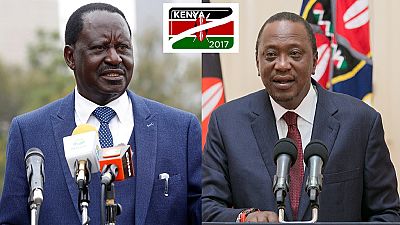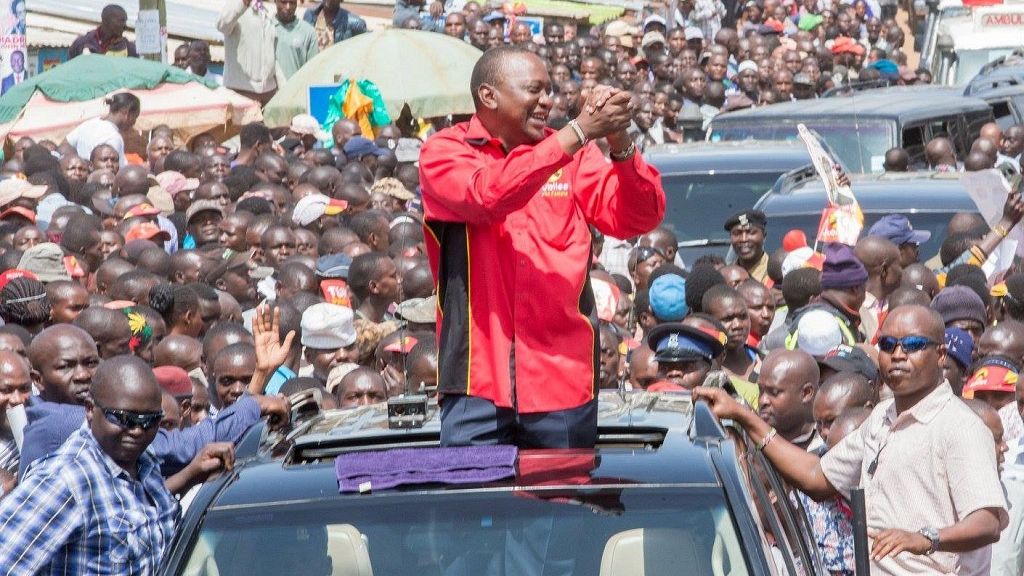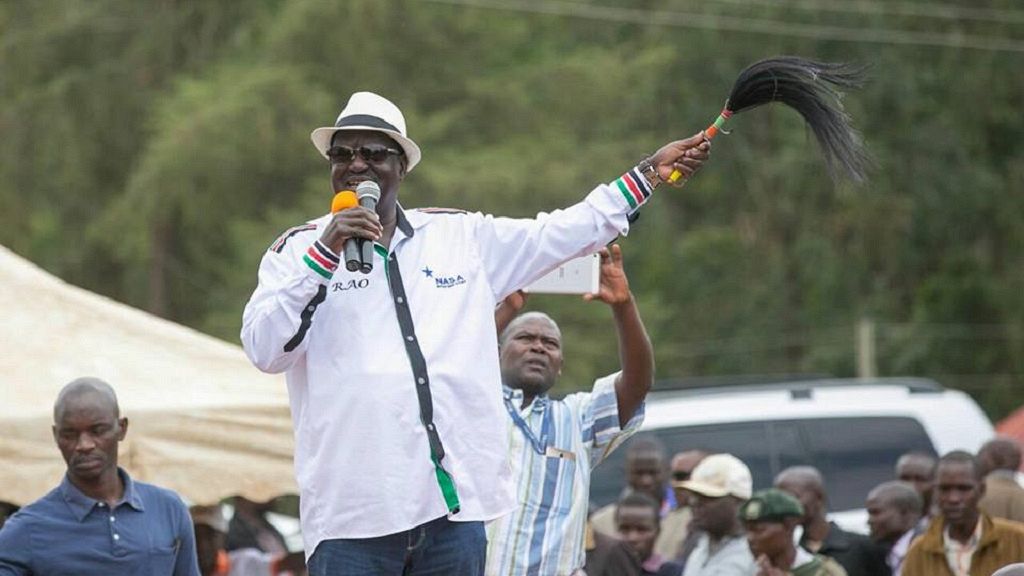
Technology is an integral part of all contemporary political campaigning the world over and that of the Kenya vote which takes place today is no different.
Kenya’s influence in the Africa region is dominant economically, academically, in the area of trade, diplomacy and security-wise. But also across the continent, its technology use is also vibrant along the likes of Nigeria and South Africa.
Social media as a campaign tool helps, beyond Kenya, to take political messages to people the world over. Both candidates and their respective parties have made it a point to utilize social media platforms throughout the campaign.
Meet the eight candidates for Kenya’s 2017 presidential elections
This article looks at mainly Facebook and Twitter as battlegrounds for incumbent Uhuru Kenyatta (candidate of the Jubilee Party, son of the first president) and ex-Prime Minister Raila Odinga (candidate for the NASA coalition, son of the first vice-president) and their respective parties.
Candidate: Uhuru Kenyatta aged 55
Facebook: 3.1 million followers
Twitter: 2.2 million followers
Instagram: 80,000+ followers
Party: Jubilee
Facebook: 371,400+ followers
Twitter: 51,400+ followers
Instagram: 8,800+ followers
Website: www.jubileepamoja.co.ke

Candidate: Raila Odinga aged 72
Facebook: 872,000+ followers
Twitter: 1.19 million+ followers
Instagram: –
Party: National Super Alliance (NASA)
Facebook: 275,600+ followers
Twitter: 9,100+ followers
Instagram: – Website: www.nasacoalition.com

Brief About the Kenyan general elections
Kenyans vote in general elections meant to pick a president, governors, members of the legislature and members of county assemblies.
The East Africa and continental powerhouse has been in a frenzy for weeks now as candidates canvass for votes across the length and breadth of the country. Campaigning ended late Saturday (August 6), two clear days to voting day as per electoral laws.
The European Union Election observer mission has described the polls as important not only for Kenyans but for the East Africa region and that it was a process that the world was interested in for obvious reasons.
Despite its general nature, and all local rivalries at the lower level aside, the presidential race is at the heart of the August 8 process. Among other reasons it could signal the end of a presidential ambition or the historic failure of an incumbent to secure a second term.
It takes Kenyans back to the Independence days because with the two main candidates in the race, Kenya’s first president – Jomo Kenyatta and its first vice-president Jaramogi Oginga Odinga are still very much in the country’s politics.
Tension as Africa and the world looks to Kenya
Kenyans are known to be driven more by their ethnic and tribal leanings in choosing their political leaders. The post-election violence of 2007 was largely driven by ethnic tensions and incitement.
The violence of 2007 looms over Kenya’s politics a decade on. It led to the deaths and displacement of over half a million people in the country. The run-up to the August 8 polls has equally been heated.
The torture and murder of Chris Msando, the head of the electoral body’s IT division, opposition claims of an attack on its offices – dismissed as ‘fake news’, Odinga’s position that Jubilee can only win by rigging and of course, the active threat posed by Al-Shabaab insurgents.
Already, ‘confident’ Odinga and others have said their supporters might take to the streets if the vote is rigged and suggested that anything short of an Odinga victory will be proof of rigging.
As Kenyans vote, the region and the continent at large awaits with bated breath and the world has its eye on how the African powerhouse deals with the choice of whom to give the topmost political job.
Source: AfricaNews

No comments:
Post a Comment
Add a Comment...